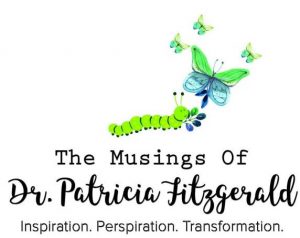In the many years of clinical practice, leading workshops, and from other incredible opportunities to meet people from all over the world, many people have shared their experiences with me regarding the effects of trauma in their lives. I am honored and humbled that many have allowed me to participate in some way in the healing process regarding this vulnerable area of their lives.
Trauma truly impacts most of us at some level and is often a contributing factor involved in many health challenges.
According to Traditional Chinese Medicine, unresolved trauma gets stored in our bodies where it festers and eventually contributes to a variety of mental, emotional, and physical concerns.
Think of trauma like a toxin or poison that the body stores as long as it can to protect you, until eventually that toxin becomes too much for the body to contain.
Fortunately, Traditional Chinese Medicine has an excellent track record in helping patients release the effects of trauma from the body without having to relive the event(s)–and there’s an abundance supporting the success of treatment.
In fact, acupuncture and traditional Chinese medicine have been studies to be effective in treating the following trauma-related mental health challenges:
- Anxiety1
- Depression2
- Depression in pregnancy3
- Neuropsychiatric disorders including depression, schizophrenia, and insomnia4
- Whiplash-associated disorder5
- PTSD6
How acupuncture works on trauma
One of the key points why Acupuncture and Traditional Chinese Medicine can be so effective on trauma is because they do not separate the mind and body when it comes to healing.
If you present to a Chinese Medicine Doctor with a physical health issue or Western diagnosis, he or she will also address the emotional and psychological aspects of your health.
To the trained TCM practitioner, trauma is always apparent in the physical symptoms of the body, which are such helpful clues as this allows for the patient and practitioner to work together to resolve that trauma without having to unearth and/or drag the patient back through the details.
This approach can be very empowering and effective, as it allows healing to occur even if the patient isn’t consciously aware of the trauma…which so many of us are not.
How acupuncture actually works on trauma
When formulating a treatment plan to address stress, anxiety, depression, or repressed emotional trauma in a patient, I focus the treatment on specific points that balance the nervous system, help re-calibrate the brain, regulate the endocrine system, and calm what’s known as the “Shen”—which governs the heart.
Traditional Chinese Medicine (TCM) views trauma as causing a shock to the heart meridian, physically, emotionally, and spiritually.
In Western medicine, this phenomenon is now known as “Takotsubo Cardiomyopathy, or “Broken Heart Syndrome”7).
This shock wave depletes the heart’s “yin”, which in this case means its ability self-regulate efficiently, to rest and be calm. Yin deficiency can be at the root of health concerns such as poor heart function, back pain, sluggish circulation, menstrual difficulties, menopausal symptoms, chronic fatigue, and vision problems and emotional challenges such as restlessness, burnout, anxiety, and agitation.
By calming the “Shen” we seek to soothe and heal the person’s whole heart.
Ear Acupuncture for PTSD
While every patient requires different points on the body to address the physical and emotional aspects of trauma, it is also common to focus on the ear points — known as auricular —for depression, anxiety and symptoms of PTSD.
Ear acupuncture has been so successful in helping people recovery from PTSD, that it’s being used in government programs to help rehabilitate soldiers.
The Military Stress Recovery Project (MSRP), launched by Acupuncturists Without Borders (AWB) offers free acupuncture to veterans and active duty soldiers with PTSD and their families.
The treatments are offered community-style (in a group setting) using a series of 5 needles placed in one ear.
The clinics have been very successful, with patients reporting significant decrease in PTSD symptoms such as stress, lack of energy, insomnia, nightmares, anxiety and depression, lack of mental clarity, and overall health8.
Research studies have backed up the efficacy of acupuncture for PTSD, 9, and the military is also using what’s know as “Battlefield Acupuncture” to help active duty soldiers in the field.
Given that it works so well for soldiers who have witnessed the horrors of war, more people are receiving acupuncture care to resolve personal traumas.
How Emotional Trauma Manifests as Dis-ease According to Traditional Chinese Medicine
While every patient will present a different picture of trauma, Traditional Chinese Medicine views how different emotions impact the physical body via the 5 organs or “elements” in specific ways.
Here are a few examples of how TCM views different emotional patterns in relation to physical ailments:
Wood Element: Liver/Gall Bladder (these organs tend to store significant stress)
Emotional associations: anger, irritability, stress, trouble unwinding, trouble letting go, being unreasonable, rash decision making
Physical associations:
- Eye issues
- Blood flow issues
- Acid reflux
- Indigestion
- Flatulence
- Constipation
- General digestive complaints
- Weight gain
Fire Element: Heart/Small Intestines
Emotional associations: lack of self-expression, lack of self-love, feelings of worthlessness, strong or uncontrollable emotions, personality disorders
Physical associations:
- Sensory disorders
- Abdominal pain
- Digestive issues
- Heart and circulation problems
- Lack of appetite
- Gurgling sounds in abdomen
- IBS
Earth Element: Spleen/Stomach
Emotional associations: chronic stress, worry, anxiety, overthinking, negative thoughts
Physical associations:
- Poor appetite
- Loose bowels
- Feeling overly full after eating
- Pale complexion
- Thyroid complaints
- Fluid imbalance
- Poor immunity
- Blood sugar issues
Metal: Lung/Large Intestine
Emotional associations:
Sadness, grief, fear of something bad happening, emotional baggage, quick to cry/inability to process sadness or grief, depression
Physical associations:
- Hair loss
- Asthma
- COPD
- Seasonal allergies
- Weak immunity
- Constipation
- Cough
- Shortness of breath
Water: Kidney/Urinary Bladder
Emotional associations: fear, panic attacks, anxiety
Physical disease associated with kidney/urinary bladder imbalance:
- Ear problems such as tinnitus, ear infections, hearing problems
- UTIs
- Kidney stones
- Bone health issues
- Brittle nails
- Rashes or skin conditions
How to get started healing trauma with acupuncture
First off, it’s important to recognize that while traumas can leave us feeling wounded and broken, in healing them we can experience very positive transformations.
One of my favorite quotes on this comes from pioneering trauma therapy expert, Dr. Peter A. Levine, who says:
“The paradox of trauma is that it has both the power to destroy and the power to transform and resurrect.”
It is important to find a trauma-informed acupuncturist who you trust. While an acupuncturist will not replace a psychologist or mental health professional, he or she can be a valuable part of the team guiding you through your healing process.
And the body never lies; which means you won’t have to dredge up or relive any painful events while on the table.
Rather, we’ll simply work on releasing the physical issue, which in turn, allows the release of the associated emotional trauma and the empowerment and healing of the individual.
In over 25 years of practicing Traditional Chinese Medicine, supporting patients in transforming the effects of trauma has been among the most rewarding experiences, as I am honored to witness them uncovering gifts and power inside themselves that often allows them to blossom so magnificently, often living lives beyond what they thought was possible.
- https://www.ncbi.nlm.nih.gov/pubmed/27355312
- https://www.scientificamerican.com/article/can-acupuncture-treat-depression/
- https://www.ncbi.nlm.nih.gov/pmc/articles/PMC3689180/
- https://www.frontiersin.org/articles/10.3389/fpsyt.2019.00014/full
- https://www.ncbi.nlm.nih.gov/pmc/articles/PMC6203494/
- https://www.naturalmedicinejournal.com/journal/2010-04/acupuncture-treatment-posttraumatic-stress-disorder-review-evidence-based-research
- https://www.health.harvard.edu/heart-health/takotsubo-cardiomyopathy-broken-heart-syndrome
- https://acuwithoutborders.org/domestic-work/
- Acupuncture for PTSD: https://www.researchgate.net/publication/268388635_Randomized_effectiveness_trial_of_a_brief_course_of_acupuncture_for_Posttraumatic_Stress_Disorder

